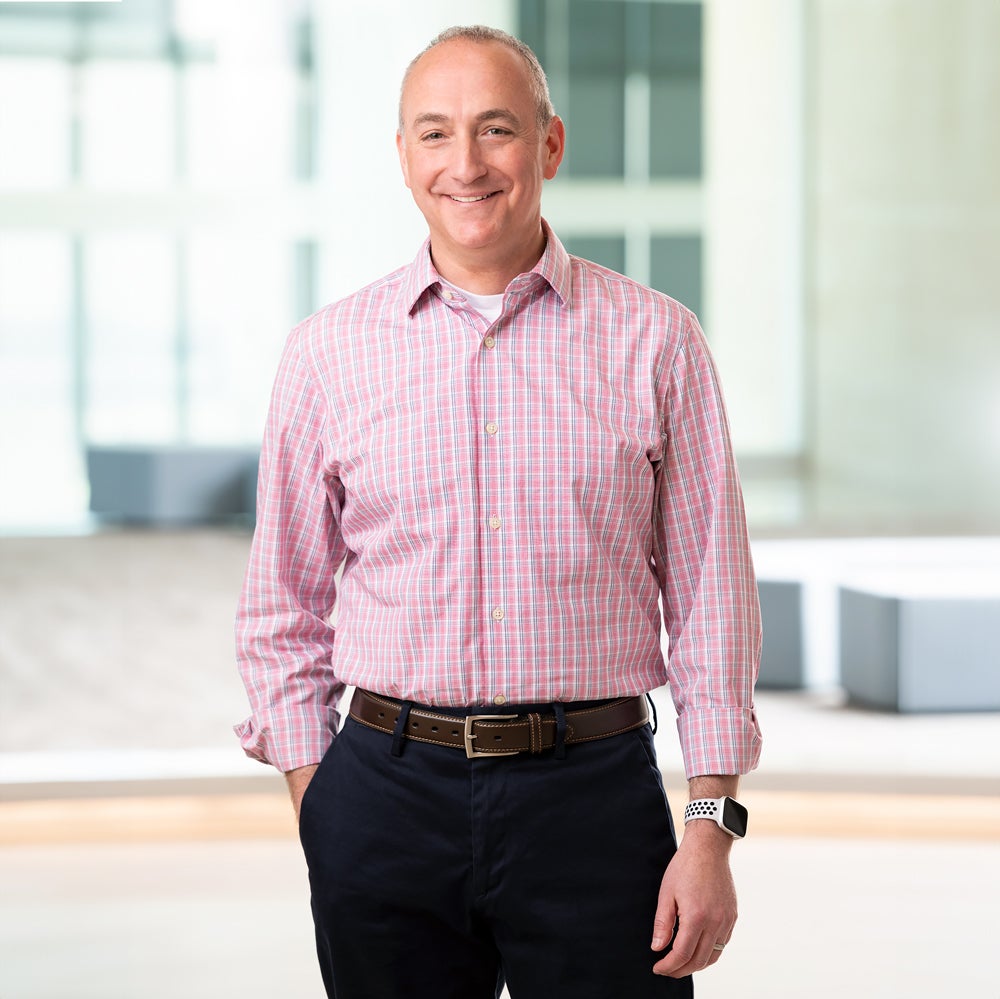A conversation with Michael Benadon ’93 and Kam Warren ’24, communication studies and public relations.
Michael Benadon ’93, communication studies and public relations, is the Vice President of Talent Acquisition for Capital One. During his time at URI, Benadon took advantage of his courses at URI to become a proficient public speaker, a skill that he has used as a Resident Advisor (RA). A few years after graduating, Benadon began working at Capital One as an infrastructure specialist, eventually becoming a Divisional Chief Information Officer at the company. After moving around between different companies, Benadon came back to Capital One in 2019 in his current role. Throughout all of these experiences, Benadon said he has used the skills he learned as a communication major to become successful.
Why did you choose to study at URI?
I grew up in Barrington, [Rhode Island], and my brother, who is four years older than me, came here. So I got to spend some time down here and shadow him in some classes. It was close to home, and it was affordable, which was a big factor as well. And I’ll just say I love this place, the culture, the campus, and the town. So that was ultimately how I ended up here.
What made you choose your major?
I majored in communication studies because I found that I really liked public speaking. I was always a fairly good writer, not necessarily creatively, but I was always able to translate information into something that someone else could understand. So that’s what got me interested in communication. I personally never moved off campus, which I think was another thing that got me interested in just how to interact with people. A big part of communication is listening and then taking that same kind of skill to translate it into something different, which I think is a useful skill to learn.
How do you use the skills you learned while at URI?
Looking at life skills first, the school’s overall culture and environment had a big impact on me. I had to figure things out on my own, which I thought was great. The University had a ton of resources to help me figure things out when I needed it. I also got a job as an RA and was on staff over the summer, so I never left this campus. In fact, I never moved home after college. I went to New York immediately after I graduated. Through this culture and the experience of living with these people, I was able to meet my lifelong friends.
Another skill I’d say is learning to be a lifelong learner. I’m always trying to learn something new. Thinking and approaching things from the perspective of others. I may know some things, but I promise you there are many people who are way smarter than me that I learn from, and I’d rather build a good team around me to learn from.
Now from the classroom, the things that stuck with me the most were from my public speaking classes. I learned how to write effective communications, like learning how to structure content to get to your audience.
I think translating that into what is today’s communication, whether that’s email or Slack, it’s super useful in several ways. Those are probably the skills that stuck with me the most. Most of my career has been in technology, so I use my communication skills often. I would say I was successful in technology because I was able to take really technical concepts, talk to a bunch of people who weren’t technical, and help bring them along to learn something.
What is your favorite memory from URI?
I loved being an R.A. because I knew everybody in the dorms, and everybody knew me. It was super fun. I also played a ton of intramural basketball, and that was a huge stress reliever and a great way to meet people. So those would probably be like the things that I remember. Though, as I mentioned, the lifelong friendships I built also stand out.
There was one communications professor who really pushed us to learn how to speak in front of a group and what the value was in it. He was great. I thought he was the best in terms of giving feedback; he was grounded and always to the point. He was someone who definitely had an impact on how I give and receive feedback in general.
What one piece of advice would you give students who are preparing to enter the workforce?
I would just say go out with an open mind with everything that you’re going to do. Every opportunity that you get is a learning experience. Just commit to learning something even if you don’t like it. I guarantee you, you’re going to not like some jobs, but you need to take those experiences and say, “Okay, what can I take away from that?”
Over the years, I have learned that integrity and trust in leadership are the things I value most. And if I don’t have that in a workplace, then I don’t want to be at that place. I think finding those moments that matter and finding what’s important to you is the best advice I could give.
Also, make good use of your network. When you’re in a workplace, most companies and most people that are established in an organization want to help someone be successful. Think about the company you work for, the culture, and especially the people. Don’t be that person that goes in and assumes you know everything. Listen, learn, honor the past.

